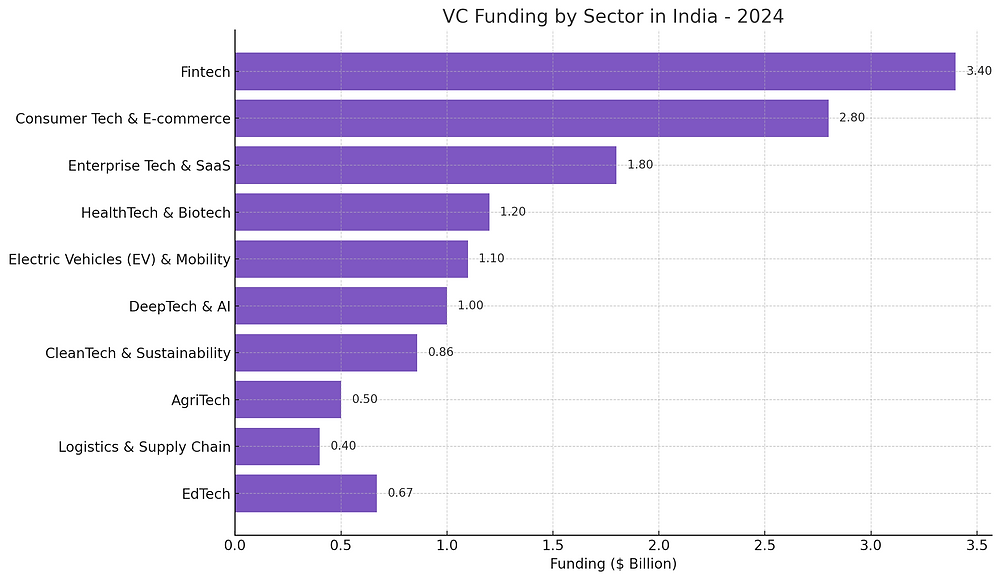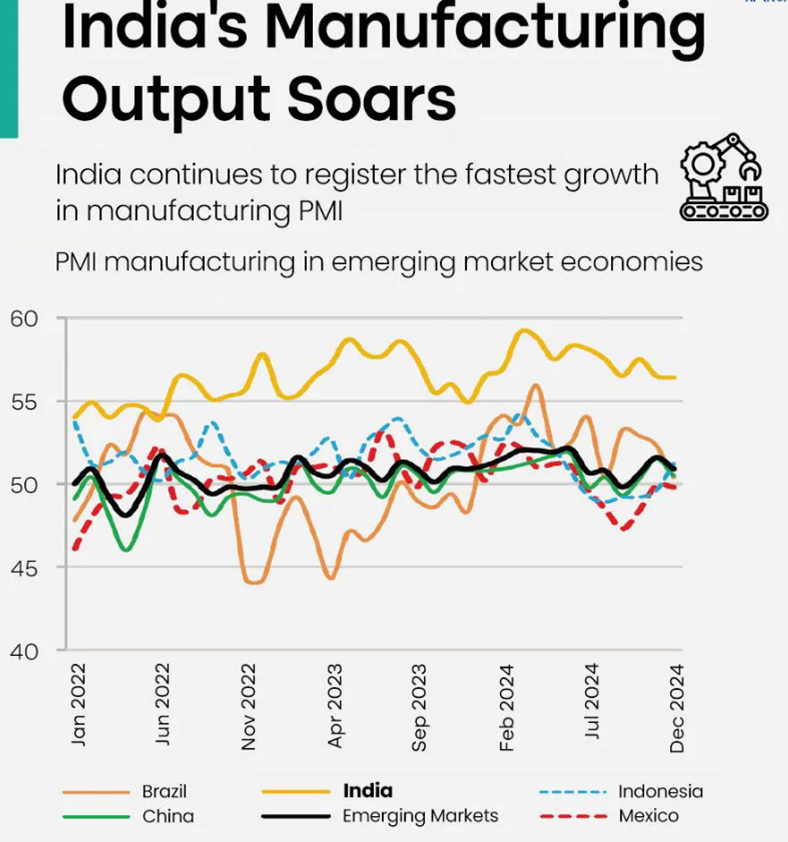India’s startup ecosystem, with over 120,000 startups and 100+ unicorns, remains a global powerhouse in 2025, driven by innovation, a robust digital infrastructure, and a young, entrepreneurial workforce. However, the economic landscape this year is marked by volatility, with global debt soaring to $307 trillion, supply chain disruptions, and cautious investor sentiment creating challenges for growth. Indian founders are responding with agility, leveraging technology, diversifying revenue streams, and tapping into new markets to navigate these shifts. This article explores how these entrepreneurs are adapting to economic changes, ensuring resilience and sustainability in a dynamic environment.
The Economic Context of 2025
India’s economy is projected to grow at 6.3–7.8% in 2025, outpacing most global peers, thanks to strong domestic consumption and digital adoption. The Unified Payments Interface (UPI) handles over 50 billion transactions annually, and the Open Network for Digital Commerce (ONDC) is democratizing e-commerce, enabling small businesses to compete. However, global headwinds—such as rising interest rates, a 4% decline in global trade, and geopolitical tensions—have tightened funding, with venture capital inflows dropping 15% from 2024 peaks. Domestically, inflation pressures and regulatory complexities add further hurdles for startups.
These economic shifts demand strategic adaptation. Founders are rethinking business models, optimizing costs, and aligning with emerging consumer and investor priorities, such as sustainability and profitability, to thrive in this challenging environment.
Key Economic Shifts and Founder Responses
1. Tightening Funding Environment
Challenge: The global funding winter persists, with early-stage startups facing the brunt. In 2024, only 12% of Indian startups secured Series A funding, down from 18% in 2023. Investors are prioritizing profitability over growth, pushing founders to demonstrate sustainable unit economics.
Adaptation: Founders are diversifying funding sources and focusing on cash flow. Bootstrapping has surged, with 40% of startups in 2025 relying on internal revenues or angel investors. For instance, Nithin Shenoy, founder of a SaaS platform for SMEs, pivoted to a subscription-based model, achieving breakeven within 18 months by targeting small businesses in Tier 2 cities. Others are tapping alternative financing, such as revenue-based funding or qualified institutional placements (QIPs), as seen with Paytm’s $300 million QIP in early 2025 to fund AI infrastructure.
Startups are also optimizing costs through automation. AI-driven tools like Zoho’s analytics suite help founders streamline operations, reducing overheads by up to 25%. This focus on efficiency is attracting investors who value lean operations, with 65% of VCs in 2025 prioritizing startups with clear paths to profitability.
2. Rising Consumer Expectations
Challenge: Indian consumers, particularly in Tier 2 and Tier 3 cities, are demanding value-driven, sustainable, and personalized products. With 666.4 million internet users in 2025, digital channels are shaping purchasing decisions, but inflation is making consumers price-sensitive.
Adaptation: Founders are pivoting to meet these demands by leveraging India’s digital public infrastructure (DPI). E-commerce startups like DeoDap are using ONDC to reach rural consumers with affordable, high-quality goods, achieving a 30% increase in sales from non-metro regions. Similarly, direct-to-consumer (D2C) brands like Orgatre have introduced eco-friendly personal care products, tapping into the 20% growth in demand for sustainable goods.

AI is playing a pivotal role in personalization. Fashion startups like Myntra are using AI-driven recommendation engines to tailor offerings, boosting conversion rates by 15%. Founders are also embracing vernacular content and regional influencers to connect with diverse audiences, ensuring cultural relevance in a multilingual market.
3. Supply Chain Disruptions
Challenge: Global supply chain bottlenecks, driven by geopolitical tensions and energy price spikes, have increased costs for Indian startups, particularly in manufacturing and logistics. Import dependency for components like semiconductors remains a hurdle.
Adaptation: Founders are localizing supply chains and adopting technology to mitigate disruptions. Agritech startups like Ninjacart are partnering with local farmers to create resilient, decentralized supply networks, reducing reliance on imports by 20%. IoT and blockchain are being used to enhance supply chain transparency, with startups like Staqu Technologies deploying AI-powered tracking to optimize logistics.
Some founders are pivoting to service-based models to bypass physical supply chain issues. For example, a Bengaluru-based hardware startup shifted to offering software-as-a-service (SaaS) solutions for IoT devices, reducing costs and scaling faster in international markets like the UAE.
4. Regulatory and Compliance Pressures
Challenge: India’s regulatory landscape is evolving, with stricter data privacy laws, GST compliance, and sector-specific regulations creating complexity. Non-compliance can lead to hefty fines, as seen in recent crackdowns on fintech startups.
Adaptation: Founders are investing in compliance infrastructure and leveraging regtech solutions. Startups like Razorpay are integrating AI-driven compliance tools to automate tax filings and ensure adherence to the Digital Personal Data Protection Act (DPDP). Others are collaborating with legal tech platforms like Vakilsearch to navigate regulatory hurdles efficiently.
Cross-border expansion is another strategy, with 55% of startups targeting markets like the USA and Singapore, where regulatory frameworks are more predictable. For instance, SIGNO, a fleet management startup, adapted its platform to comply with EU data standards, enabling entry into European markets.
5. Global Competition and Talent Crunch
Challenge: Global giants and domestic competitors are vying for market share, while a talent shortage in AI, cybersecurity, and product management is driving up hiring costs. Startups lose 25% of their tech talent annually to larger firms.
Adaptation: Founders are focusing on upskilling and remote work to attract talent. Edtech platforms like upGrad are partnering with startups to offer tailored training programs, with 30,000 professionals upskilled in AI and data science in 2025. Remote work models have enabled startups to hire from Tier 2 cities, reducing costs by 15–20%.
To counter global competition, founders are niching down. For example, DeepSource, a DevSecOps platform, launched Globstar, an open-source toolkit, to differentiate itself in a crowded market, gaining traction among global developers.
Case Studies: Adaptation in Action
EcoVibe: Sustainability Meets Profitability
Founded by Shalini Rao, EcoVibe, a sustainable packaging startup, faced funding challenges in 2024 due to investor skepticism about margins. Rao pivoted to a B2B model, supplying biodegradable packaging to e-commerce giants like Flipkart. By integrating AI to optimize production, EcoVibe reduced costs by 18% and secured a $2 million seed round in 2025, demonstrating how economic pressures can drive innovation.
FinBox: Navigating Regulatory Shifts
FinBox, a fintech startup, adapted to stricter RBI regulations by pivoting from consumer lending to embedded finance solutions for SMEs. Using AI to assess credit risk, it partnered with ONDC to offer micro-loans to small merchants, achieving a 40% growth in transaction volume. This pivot not only ensured compliance but also tapped into a $50 billion market opportunity.
HealthTrack: Scaling in Tier 2 Cities
HealthTrack, a telehealth startup, initially focused on urban markets but faced saturation. Founder Priya Menon shifted to Tier 2 and Tier 3 cities, using vernacular teleconsultations and UPI-based payments to reach underserved areas. This pivot boosted user acquisition by 35%, aligning with the growing digital penetration in non-metro regions.
Strategies for Resilience
Indian founders are employing several strategies to adapt to economic shifts:
- Data-Driven Decision Making: AI analytics tools are helping founders predict market trends and optimize resources. For instance, 75% of high-growth startups use data to refine pricing strategies.
- Customer-Centric Innovation: Listening to customer feedback ensures products align with market needs. Startups like Bounce use WhatsApp surveys to iterate offerings rapidly.
- Partnerships and Ecosystems: Collaborations with DPI platforms like ONDC and industry bodies like NASSCOM provide access to resources and markets. Over 50% of startups in 2025 are part of ecosystem partnerships.
- Diversified Revenue Streams: Founders are exploring B2B, B2C, and export models to reduce dependency on single markets. D2C brands like Mamaearth are launching export-focused product lines for the Middle East.
- Focus on Unit Economics: Startups are prioritizing profitability, with 60% of founders reporting positive cash flows in 2025, up from 45% in 2024.
Challenges and Opportunities
Adapting to economic shifts is not without hurdles. India’s fragmented market requires tailored solutions, which can strain resources. Talent retention remains a challenge, with startups spending 20% of budgets on hiring. Regulatory compliance and cybersecurity risks, with 30% of startups facing data breaches in 2024, demand ongoing investment.

Yet, these challenges present opportunities. India’s DPI and growing internet user base (666.4 million in 2025) offer unparalleled scale. Government support through Startup India and tax incentives for green tech and AI startups is fueling growth. The global demand for Indian solutions, particularly in SaaS and cleantech, positions founders to capture international markets.
Conclusion
In 2025, Indian founders are navigating economic shifts with resilience and ingenuity, turning challenges into opportunities for growth. By leveraging technology, diversifying revenue, and aligning with consumer and regulatory demands, they are redefining success in a volatile landscape. As India cements its position as a global innovation hub, these adaptive strategies ensure that its startup ecosystem remains a beacon of dynamism and potential.
Last Updated on: Tuesday, July 15, 2025 10:09 am by Puneeth kamalapuram | Published by: Puneeth kamalapuram on Tuesday, July 15, 2025 10:09 am | News Categories: Uncategorised
